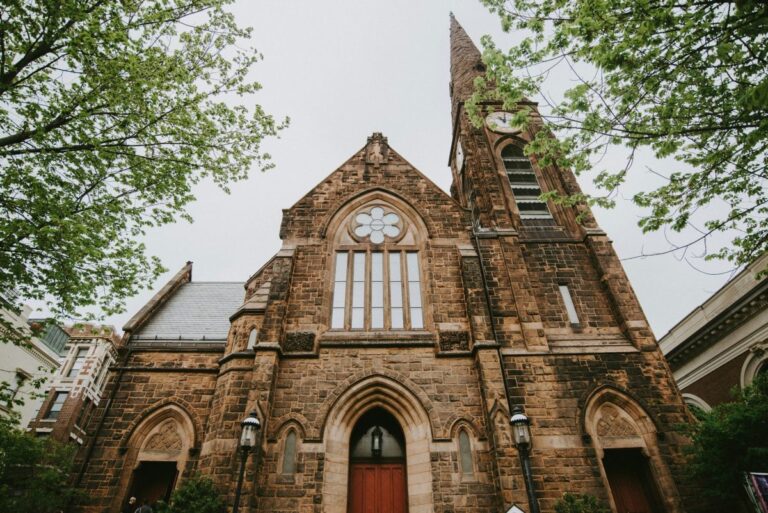Banned Books: California And San Diego Lawmakers Work To Protect Them
The number of challenged and banned books in school curriculums and public libraries continues to rise as books tackling themes like race, LGBTQ+ identity, sex, and more have become the central focus of a culture war over education. In the last year alone, 4,240 unique book titles were targeted for censorship in schools and libraries in the United States, according to the American Library Association (ALA).
As successful and unsuccessful challenges to books persist, so do efforts to oppose these challenges and protect books from being banned. The California State Legislature and the San Diego County Board of Supervisors are both currently working on policies that push back against challenging or banning books. The State Senate is close to passing a State Assembly bill that would prevent frequently challenged books from being removed from public library shelves, while San Diego Supervisor Terra Lawson-Remer is backing a similar policy at the county level.
The State of Banned Books Nationwide
https://gty.im/144499319
According to the most recent book ban data report released by the ALA, the number of unique book titles challenged in the U.S. increased by 65% from 2022 to 2023; the number of books challenged last year, 4,240, was the highest the ALA has ever recorded. Compared to 2022, the number of books challenged in public libraries increased by 92% and those challenged in school libraries increased by 11%.
47% of the books challenged last year focused on the voices and lives of LGBTQ+ and BIPOC characters, including Gender Queer: A Memoir by Maia Kobabe, Flamer by Mike Curato, and The Bluest Eye by Toni Morrison. Additionally, last year, 100 unique books were challenged across 17 U.S. states: Colorado, Connecticut, Florida (the state with the second-most banned books), Idaho, Illinois, Iowa, Kentucky, Maryland, Missouri, North Carolina, Ohio, Pennsylvania, Tennessee, Texas (the state with the most banned books), Utah, Virginia, and Wisconsin.
The California State Legislature’s Bill
Last September, the California State Legislature passed and Governor Gavin Newsom signed an anti-book ban bill that prevents school boards from censoring or banning books or other learning materials from the districts they oversee. This year, the State Assembly has already passed and the State Senate is now considering Assembly Bill 1825 (AB1825), the “California Freedom to Read Act,” which focuses on public library policy towards challenged and banned books.
This bill would require each public library in the state to create a written policy for cultivating their book collections and make that policy available to the public. It would also prevent library boards from restricting or removing books that feature certain potentially controversial topics or views from their shelves. The bill, however, doesn’t apply these requirements to publicly-funded school libraries.
The bill has garnered familiar supporters and opponents. Supporters argue that the bill will protect Californians’ rights to read books that express a wide variety of ideas and opinions and librarians’ ability to use their own professional judgment to shape their libraries without outside pressure. On the other hand, opponents argue that the bill prevents local library governing boards from exercising their proper authority to shape library collections and blocks the public from any role in shaping the way their local libraries look. The State Senate looks to be in the final stages of passing AB1825 before sending it to Governor Newsom’s desk for approval.
San Diego Supervisor Lawson-Remer’s Support
https://gty.im/1704596960
Expressing her support for AB1825, San Diego County Supervisor Terra Lawson-Remer has proposed her own policy to make sure that frequently challenged or banned books are protected and accessible in the county’s 33 library branches. Her proposal would prevent library boards in the county from banning or restricting any materials due to the topics they include or the ideas or opinions they express. It would also prompt San Diego County to acquire and provide physical and digital copies of banned books to each county library so readers can easily access them. Finally, it would require the county’s Chief Administrative Officer to recognize Banned Books Week, an annual event highlighting banned books that’s held every September.
According to Lawson-Remer, she is proposing this policy to prevent books from being banned in San Diego County, stand up for democracy, protect county citizens’ right to read books on various topics with various viewpoints, and “fight back against racism and bigotry.” The San Diego Board of Supervisors will vote on Lawson-Remer’s proposal on August 27.
If passed, the policy could help curtail incidents like the one that occurred at the San Diego City library at Rancho Peñasquitos last year. In that case, two protestors checked out all the books that were part of the library’s LGBTQ+ Pride display and told the head librarian, Misty Jones, that they wouldn’t return them unless the library removed them from public display. The protestors said the books weren’t appropriate for children, while Jones stated that children who were LGBTQ+ or had LGBTQ+ parents should be allowed to read those books.
Final Thoughts
The continuing rise of challenging and banning books across multiple states over the past several years can be disheartening to those who enjoy reading books with diverse, complex topics and views as well as those who oppose censorship in favor of freedom of expression. Just as there have been many citizens and local and state governments that have challenged and banned books, there have also been citizens and states that have pushed back against these challenges to prevent books from being banned.
California’s Assembly Bill 1825 and the San Diego County Board of Supervisors’ policy proposal are both the latest steps in a countertrend that opposes book bans and encourages access to frequently challenged books for all readers. While the Assembly Bill still has to go through the Senate and onto Governor Newsom’s desk and the Board of Supervisors still has to vote on Lawson-Remer’s proposal, both the state and county governments’ efforts to protect banned books should come as welcome news to anyone who opposes book bans.
For More Great Content
Are you desiring top-tier content that covers everything? From thrilling sports and intoxicating entertainment news to gaming tips and professional betting advice, Total Apex covers it all. Delve into our no-fluff articles to stay ahead of the game with the latest sports action, uncover the hottest trends in entertainment, and get the latest scoops in the gaming industry that will take your experiences to the next level.
Finally, our betting advice will give you a decisive edge over the competition and increase your odds of beating the books. Whether you’re looking to stay updated or gain a competitive edge, Total Apex is your one-stop shop for all things compelling and relevant. Don’t forget we cover Fantasy Sports, too!
Check out all our sites: Total Apex Sports, Total Apex Fantasy Sports, Total Apex Entertainment, Total Apex Sports Bets, and Total Apex Gaming. Out of the ashes of obscurity will rise a beast. Always remember to Respect The Hustle! Follow us on Twitter/X @TotalApexSports to stay informed.





